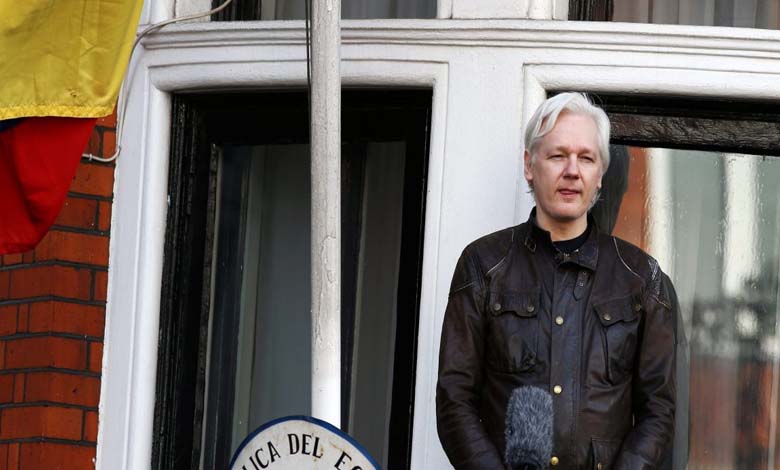Julian Assange: The Godfather of “Document Hacking”

Julian Assange has dominated headlines for years, bringing embarrassing documents from the shadows into the light and putting major governments in difficult positions over the years.
Assange, who has reached a plea deal with the U.S. authorities in exchange for his release, is seen by some as a hero defending freedom of expression. However, others view the 52-year-old Australian as having recklessly handled confidential information, endangering numerous sources.
Assange founded the website WikiLeaks, which exposed government secrets worldwide by leaking information, notably including American military files related to the wars in Iraq and Afghanistan.
The man spent over a decade either detained or confined within the Ecuadorian Embassy in London in an effort to avoid extradition, first to Sweden where he faced rape charges and then to the United States, according to Agence France-Presse (AFP).
Born in 1971 in Townsville, Queensland, Assange moved frequently during his childhood, attending 37 schools before settling in Melbourne.
During his teenage years, he discovered his talent for hacking, which attracted the attention of Australian police. He pleaded guilty to most of the charges against him and was fined.
Assange established WikiLeaks in 2006 in collaboration with a group of ideologically close activists and information technology experts under the banner of setting “a new standard for free press,” as he later told AFP.
Asylum in the Embassy
His legal battles began shortly after he published confidential documents about the American military operations in Iraq and Afghanistan in the same year. This was followed by rape allegations in Sweden, which he consistently denied.
He was in Britain when Sweden sought his extradition. However, Ecuador granted him political asylum and allowed him to enter its embassy in London.
Assange lived in a small apartment inside the embassy for seven years from 2012, where he exercised on a treadmill and used a sun lamp to compensate for the lack of natural light, likening this life to living on a space station.
However, his long stay at the embassy ended when a new government came to power in Quito and handed him over to British police in April 2019. He was arrested for bail jumping and imprisoned.
Swedish prosecutors closed the rape-related investigation against him in 2019, stating that despite the “credible” testimony of the alleged victim, the evidence was insufficient to proceed.
But the U.S. authorities charged Assange with violating the American Espionage Act, and he was then held in the high-security Belmarsh prison in London as a lengthy legal battle unfolded to decide on his extradition.
Assange is scheduled to appear in court in the Northern Mariana Islands, a U.S. territory in the Pacific Ocean, where he will plead guilty to a single charge of conspiring to obtain and disclose national defense information, in exchange for his freedom, closing a long legal saga.
Connection with Russia?
Supporters of Assange, including Chinese dissident artist Ai Weiwei and the late fashion designer Vivienne Westwood, believe that the charges against him are politically motivated and have repeatedly expressed concerns about the physical and psychological repercussions of his lengthy imprisonment.
Assange initially had the support of human rights groups and newspapers that collaborated with him in editing and publishing American war records.
Evidence included a leaked video showing an American Apache helicopter firing on two journalists and several Iraqi civilians on a Baghdad street in 2007.
However, panic ensued when WikiLeaks published unredacted documents on the internet, including the names of informants, leading to significant disputes between Assange and his media partners.
Moreover, increasing questions have also been raised about Assange’s relationship with Russia.
-
American Failure in Managing the SDF and Tribal Crisis Warns of Escalation in Battles
-
After the American report, how did the chaotic Western withdrawal lead to a disaster in Afghanistan?
Special Counsel Robert Mueller’s investigation into Russian interference in the 2016 U.S. presidential election, which Donald Trump won, concluded that the Russians apparently hacked the campaign emails of then-Democratic candidate Hillary Clinton and “published these materials openly through various intermediaries, including WikiLeaks.”












